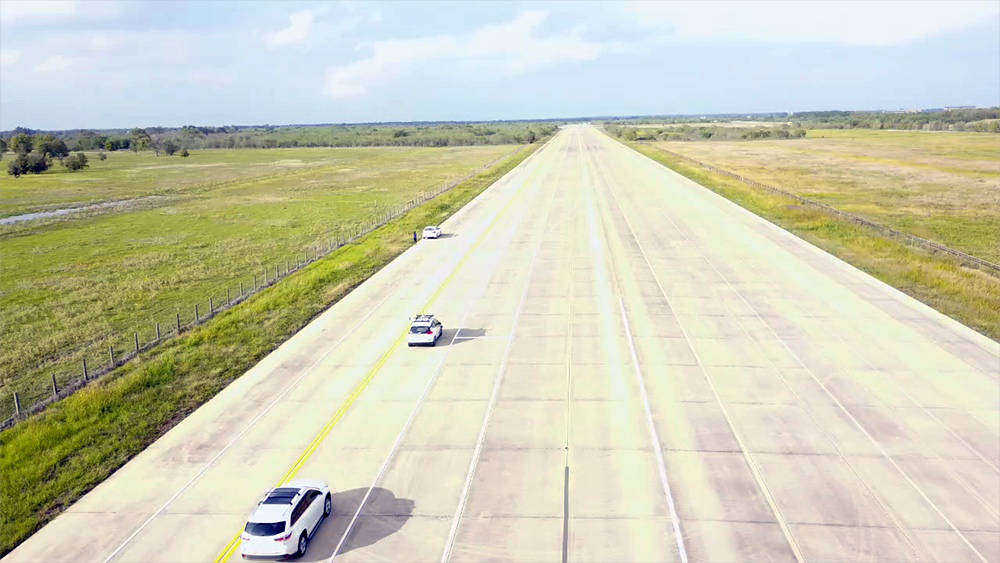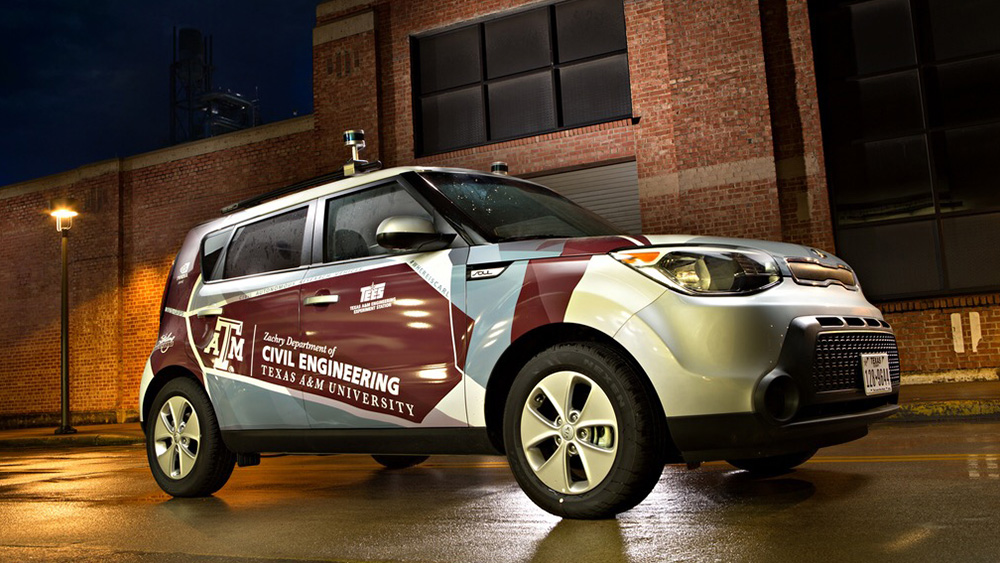
Until recently, research on automated vehicles (AVs) and human driver interaction was not a well-studied subject in the realm of transportation. A team of graduate students in the Department of Civil and Environmental Engineering has dedicated the last few years to looking deeper into this area.
“These vehicles have fundamentally different decision-making logic compared to human drivers, and the driving interactions between AVs and humans can potentially change traffic flow dynamics,” said Yalda Rahmati, doctoral student in the department. “Utilizing field experiments conducted using Texas A&M University’s automated vehicle, we aim to provide an answer to the following question: ‘Do humans' driving behavior change when they interact with an AV?’”
Answering this question is a critical step toward enhancing the realism of simulation frameworks and can facilitate the planning for the future of transportation systems.
Rahmati’s team began working on the project in 2018 and published a paper titled “Influence of Autonomous Vehicles on Car-Following Behavior of Human Drivers” in 2019, which was awarded the Fred Burggraf Award from the Transportation Research Board (TRB) Executive Committee. The award recognizes excellence in transportation research by individuals who are 35 years old and younger.

“This study was the first step toward characterizing the human-AV interactions in the transportation system,” Rahmati said. “The findings suggest there is a statistically significant difference between human drivers’ behavior when following an AV and when following a human-driven car. Human drivers felt more comfortable following the AV, drove closer to them and put less weight on the crash risk.”
Essentially, this study helps researchers to better understand and analyze traffic efficiency, stability and safety in mixed driving environments with both AVs and human-driven vehicles. The team worked under Dr. Alireza Talebpour, assistant professor in the department, along with Mohammadreza Khajeh Hosseini, doctoral student, and former teammates Christopher Nelson and Benjamin Swain.
“We are an interdisciplinary research lab at Texas A&M focused on developing smart transportation solutions such as autonomous and connected vehicles,” Hosseini said. “Our vision at the Smart City Lab is to develop efficient and safe interconnected transportation systems to enhance user experience and comfort. We investigate the effects of connectivity and automation on congestion, safety, emissions, and energy consumption through simulation and field tests with our autonomous vehicle.”
The team will be recognized and accept the award at the 99th TRB annual meeting in January 2020.